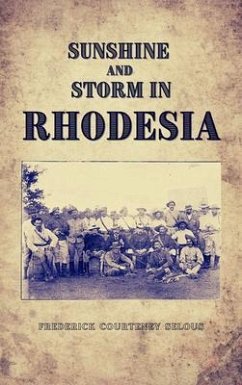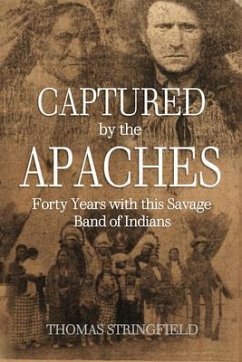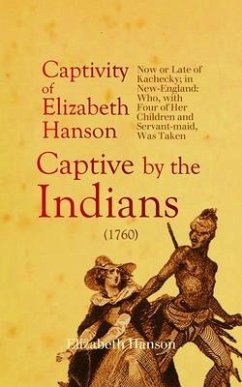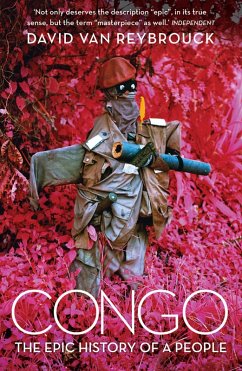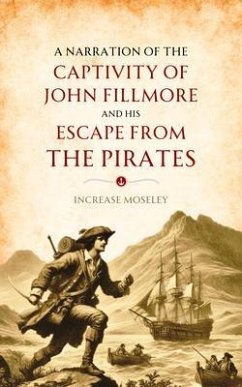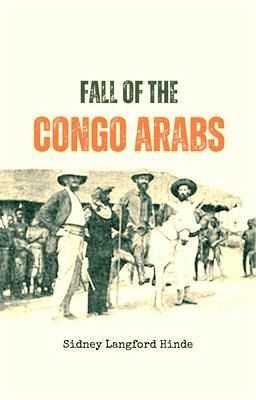
The Fall of the Congo Arabs (eBook, ePUB)

PAYBACK Punkte
2 °P sammeln!
"S.L. Hinde's intensely interesting volume 'The Fall of the Congo Arabs'...describes the Belgian expedition into the Upper Congo Basin in 1892...some...observations are too horrible for quotation...the passion for cannibalism."-Chicago Tribune, March 11, 1897"Captain Hinde...entered the service of the Congo Free State...got his chance to distinguish himself in the remarkable campaign by which the Arab power was overthrown...soldiery on both sides were often largely composed of cannibals." -The Westminster Budget, Feb. 19, 1897"The Congo Arabs were Arab slavers who, coming from the east coast o...
"S.L. Hinde's intensely interesting volume 'The Fall of the Congo Arabs'...describes the Belgian expedition into the Upper Congo Basin in 1892...some...observations are too horrible for quotation...the passion for cannibalism."-Chicago Tribune, March 11, 1897
"Captain Hinde...entered the service of the Congo Free State...got his chance to distinguish himself in the remarkable campaign by which the Arab power was overthrown...soldiery on both sides were often largely composed of cannibals." -The Westminster Budget, Feb. 19, 1897
"The Congo Arabs were Arab slavers who, coming from the east coast of Africa, carved out a domain of their own in the Congo...were overthrown by the Belgians after some hard fighting...Hinde served with the Belgians in this war." -Alabama Journal, Sept. 14, 1960
What unspeakable horrors did Canadian born officer Captain Hinde witness in the heart of Africa when he helped drive Arab slave trader rulers out of Congo in 1892?
Belgian Commandant Baron Dhanis was for three years engaged in hunting down the pseudo-Arab slave-traders on the west of Lake Tanganyika and of Stanley Falls, of whom Tippu Tib was the foremost leader. Tippu and his followers had set up a tyranny, which was on many grounds reprehensible. Captain Sidney Langford Hinde (1863 - 1930) in his 1897 book "Fall of the Congo Arabs" details his experiences as one of Baron Dhanis's lieutenants.
Hinde's book deals with the Belgian Expedition to the Upper Congo, which developed into a war between the Belgian State forces and the Arab slave-raiders in Central Africa. Two white men only returned alive from the three years' war - Commandant Dhanis and the writer of this book, Captain Hinde.
In introducing his book, Hinde writes:
"The year 1892 marks the crisis of a struggle in Central Africa between the conflicting forces of the East and the West. Between these forces, represented on the one hand by the Arabs from Zanzibar, and on the other by the Europeans from the mouth of the Congo, a collision had long been pending; and since each was bent upon supremacy within the same area, it was evident that the extinction of one power or the other could alone solve the problem.
"A body of Arab traders, hunters of slaves and ivory, had long striven to gather to Zanzibar the entire trade of Central Africa; while the Belgians of the Congo Free State, later in the field, sought to divert the commerce of the Interior to the Congo mouth, and thence, ultimately, to Europe."
About the author:
Sidney Langford Hinde was born July 23, 1863 and died October 18, 1930. He was Medical Officer of the Interior, British East Africa; Late Captain, Congo Free State Forces; was a military medical officer involved in colonial operations in the Congo and East Africa in the 19th century. Hinde was credited with aiding the overthrow of the infamous African slave trader Tippu Tip, and his successor, Sefu.
"Captain Hinde...entered the service of the Congo Free State...got his chance to distinguish himself in the remarkable campaign by which the Arab power was overthrown...soldiery on both sides were often largely composed of cannibals." -The Westminster Budget, Feb. 19, 1897
"The Congo Arabs were Arab slavers who, coming from the east coast of Africa, carved out a domain of their own in the Congo...were overthrown by the Belgians after some hard fighting...Hinde served with the Belgians in this war." -Alabama Journal, Sept. 14, 1960
What unspeakable horrors did Canadian born officer Captain Hinde witness in the heart of Africa when he helped drive Arab slave trader rulers out of Congo in 1892?
Belgian Commandant Baron Dhanis was for three years engaged in hunting down the pseudo-Arab slave-traders on the west of Lake Tanganyika and of Stanley Falls, of whom Tippu Tib was the foremost leader. Tippu and his followers had set up a tyranny, which was on many grounds reprehensible. Captain Sidney Langford Hinde (1863 - 1930) in his 1897 book "Fall of the Congo Arabs" details his experiences as one of Baron Dhanis's lieutenants.
Hinde's book deals with the Belgian Expedition to the Upper Congo, which developed into a war between the Belgian State forces and the Arab slave-raiders in Central Africa. Two white men only returned alive from the three years' war - Commandant Dhanis and the writer of this book, Captain Hinde.
In introducing his book, Hinde writes:
"The year 1892 marks the crisis of a struggle in Central Africa between the conflicting forces of the East and the West. Between these forces, represented on the one hand by the Arabs from Zanzibar, and on the other by the Europeans from the mouth of the Congo, a collision had long been pending; and since each was bent upon supremacy within the same area, it was evident that the extinction of one power or the other could alone solve the problem.
"A body of Arab traders, hunters of slaves and ivory, had long striven to gather to Zanzibar the entire trade of Central Africa; while the Belgians of the Congo Free State, later in the field, sought to divert the commerce of the Interior to the Congo mouth, and thence, ultimately, to Europe."
About the author:
Sidney Langford Hinde was born July 23, 1863 and died October 18, 1930. He was Medical Officer of the Interior, British East Africa; Late Captain, Congo Free State Forces; was a military medical officer involved in colonial operations in the Congo and East Africa in the 19th century. Hinde was credited with aiding the overthrow of the infamous African slave trader Tippu Tip, and his successor, Sefu.
Dieser Download kann aus rechtlichen Gründen nur mit Rechnungsadresse in A, D ausgeliefert werden.




